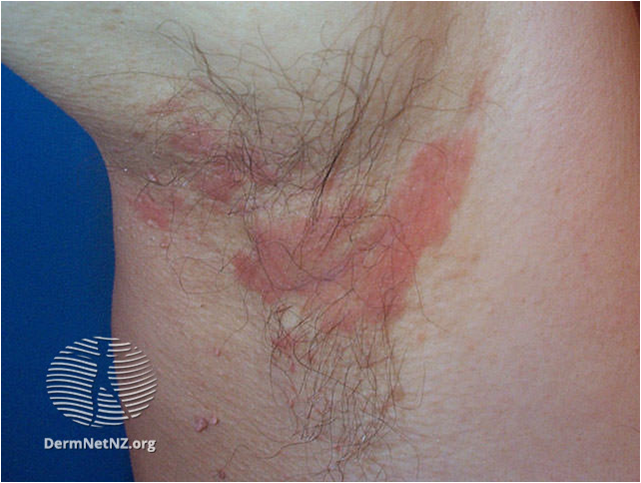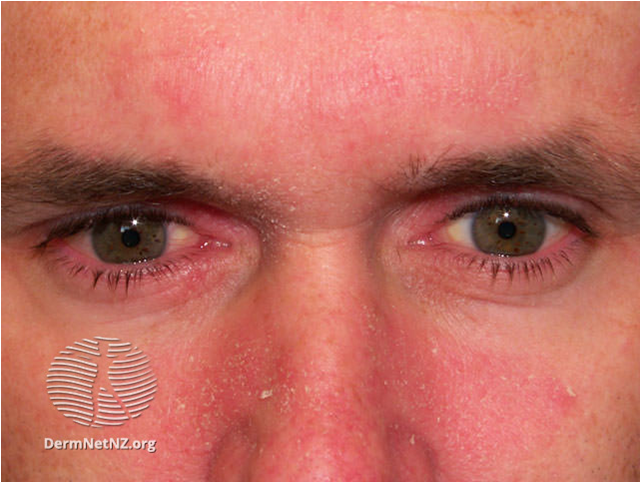Seborrhoeic dermatitis presents with red well defined areas covered with greasy scale, affecting mainly the scalp, face and upper trunk, and often the flexures. Aetiology is linked to a harmless yeast called Malassezia (Pityrosporum).


R.C 25-04-24
Who to refer
Severe or extensive disease unresponsive to appropriate treatment – 4-6 weeks with mild to moderate topical steroid and 2 weeks for potent.
Management
Treatment of cradle cap
- Use bath emollients regularly and sponge scalp clean.
- Avoid paraffin ointments. The use of olive oil is recommended by some and can be effective.
- If inflamed, use mild topical steroid for intermittent treatment.
Treatment of dandruff/adult scalp involvement
- Regular use of shampoos containing zinc pyrithione, selenenium sulphide, ciclopirox, tar or ketoconazole. If very inflamed, intermittent use of potent topical steroid lotions/gels.
Treatment of mild disease
- Regular use of emollients for dry flaky skin.
- Mild topical steroid to face e.g. hydrocortisone 1% ointment or topical anti fungal therapy alone or combined with mild steroid e.g. clotrimazole, miconazole or nystatin.
- Mild to moderate topical steroid e.g. clobetasone ointment to trunk or flexures.
Treatment of moderate disease
- Potent topical steroid ointment to torso and limbs e.g. betamethasone ointment until signs of improvement, then consider frequency reduction (e.g. 2 days per week) or step down in potency.
- Mild to moderate potency topical steroid to face then reduce frequency or potency.
Therapeutic Tip
- Use shampoos containing selenium sulphide, zinc pyrithione or ketoconazole to wash body – leave on for 5-10 minutes before washing off.
- Treat flexural involvement as intertrigo with barrier preparations or use of combination topical therapy such as Clotrimazole/hydrocortisone 1% cream (trimovate cream works well but is not on formulary)
- More severe involvement is common with Parkinson’s, HIV, or a family history of psoriasis.
- Consider oral itraconazole 100mg once daily x 3 weeks in resistant cases.
- Other products to consider: topical metronidazole gel, benzoyl peroxide, 5% lithium succinate ointment, calcineurin inhibitors (tacrolimus, pimecrolimus) though many of these are off label.
For Patients
http://www.bad.org.uk/for-the-public/patient-information-leaflets/seborrhoeic-dermatitis/?showmore=1
For Health Professionals
Link to PCDS seborrhoeic-eczema guidance













